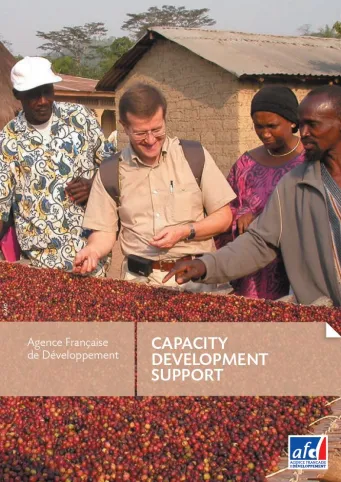Share the page
AFD and capacity development support
Published on

In the poorest countries, the weak capacities of project initiators, both public (ministries, local authorities) and private (banks, local companies, professional organizations), are often the first barriers to rapid, sustainable and inclusive economic development. These countries are often characterized by the weak governance of their institutions, shortcomings in the performance of organizations, and a lack of qualifications among the labor force.
Sound economic policies, combined with natural and financial resources, have long been considered as the only keys to development.
In 2005, the Paris Declaration on Aid Effectiveness highlighted the need to strengthen ownership by developing countries in the definition of public policies, particularly adaptation to contexts, the alignment of financing with appropriate and inclusive public policies, support for actors with a potential to bring about change, and the introduction of mutual accountability mechanisms. Capacity strengthening has consequently become one of the key instruments for the implementation of this new paradigm. The Sustainable Development Goals (SDGs) adopted in September 2015 give it increasing importance: public governance, knowledge sharing and institution building.
Useful Information
-
Collection
-
AFD and...
-
Other languages
